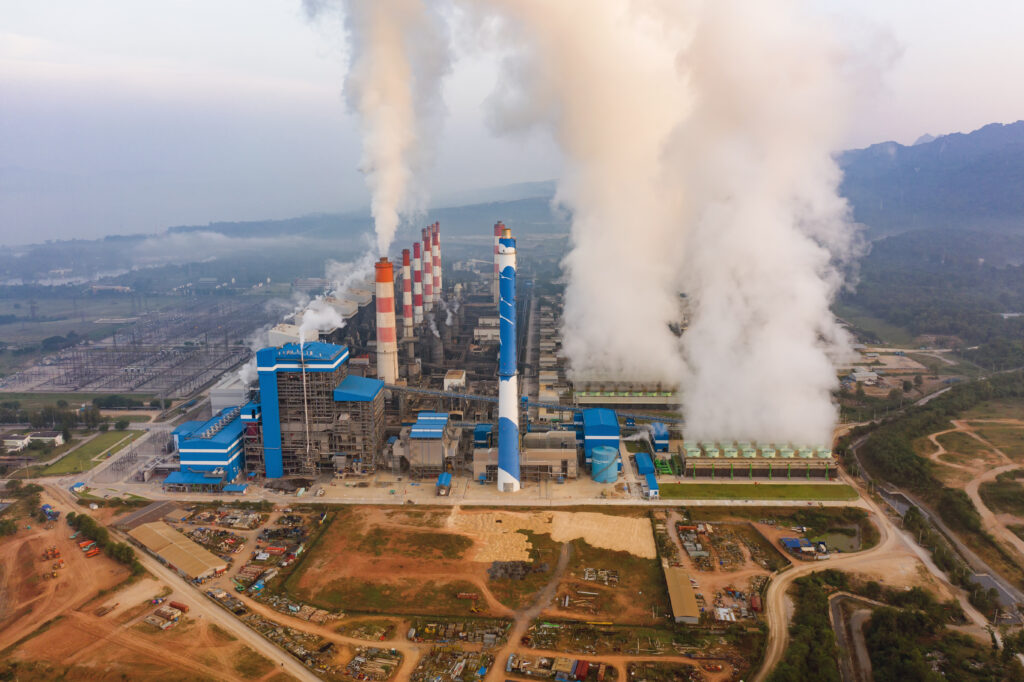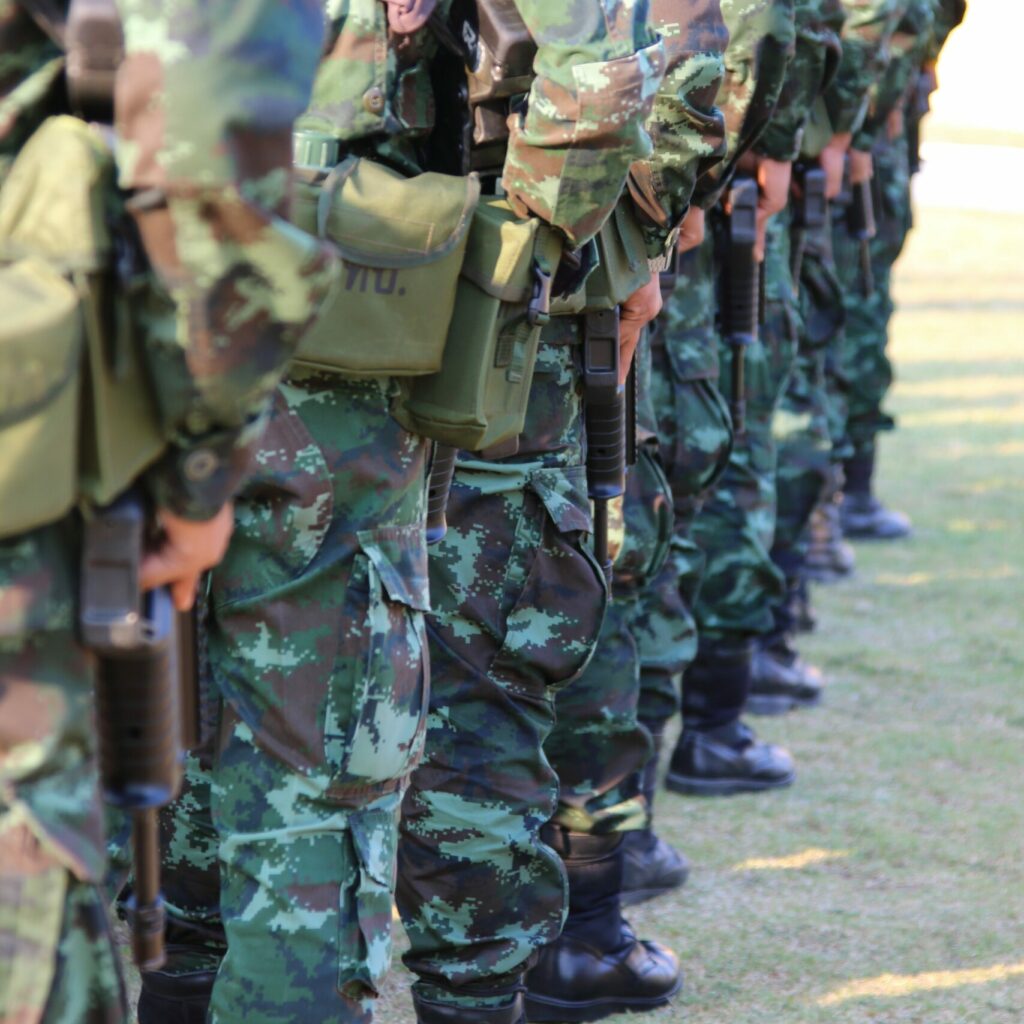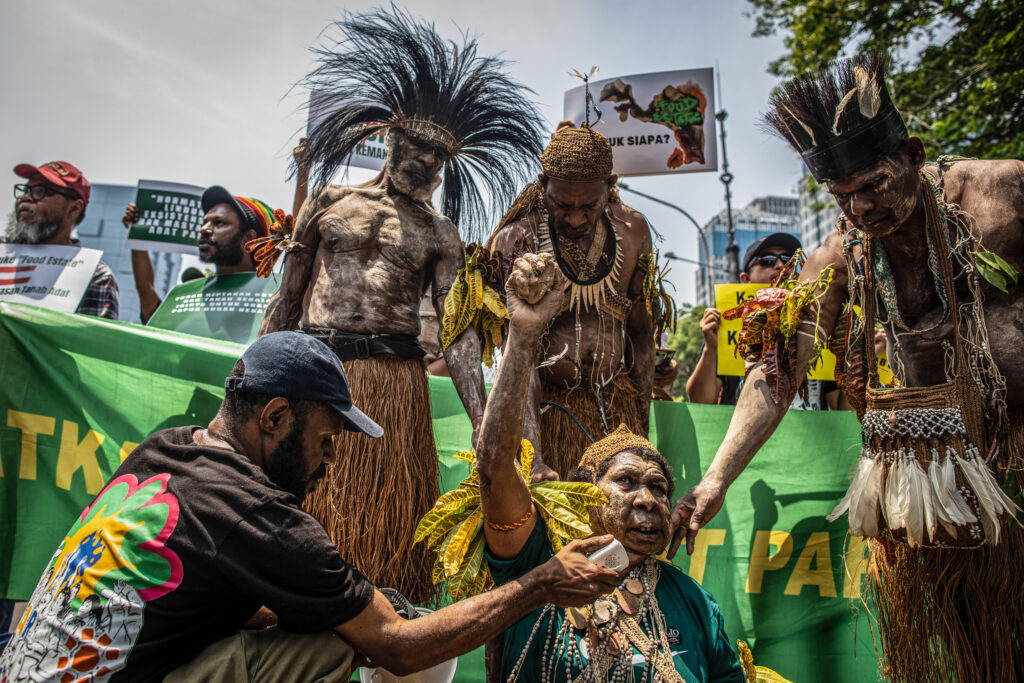Press Release
Indonesian Civil Society Solidarity Demands the Vietnamese Government to #FreeBach
Jakarta, 19 Juni 2023 – On this day, civil society in Indonesia carried out the #FreeBach action at the National Monument, Jakarta. This action is a form of solidarity between countries to demand the Vietnamese government to free Bach from criminalization. Dang Dinh Bach (“Bach”) – https://www.standwithbach.org/ – is an environmental justice lawyer in Vietnam. At the time of his arrest, he was the Director of the Law and Policy of Sustainable Development Research Centre. Bach was imprisoned by the Vietnamese government on charges of “tax evasion” and was sentenced to 5 years in prison.
Bach was a victim of criminalization for leading a campaign to reduce Vietnam’s dependence on coal and encourage the Vietnamese government to make an immediate energy transition. He has been protesting against the criminalization of himself by going on a hunger strike since May 24, 2023. He will continue to carry out the hunger strike until he is completely released from criminalization.
“Bach is a public lawyer in Vietnam and contributes to the country, one of which is that they push for several rules related to the environment, such as banning imported plastic. Bach advocated for Vietnam’s dependence on coal. He did 17 days of refusal, until 2021, before he was finally arrested,” said Asep Komarudin from the South East Asia Public Interest Lawyer (SEAPIL).
The criminalization of Bach is a form of threat to the freedom of civil society which is increasing in Southeast Asia, including in Indonesia so that solidarity between civil society in various countries must be strengthened.
“What happened in Vietnam is the same as in Indonesia, for example the criminalization of Fatia Maulidiyanti and Haris Azhar. Fatia and Haris are two heads of institutions that focus on human rights issues. Previously, the threat of criminalization occurred to the grassroots community living in the conflict area, but today the threat also attacks the assistants of the community, people who often serve as legal assistants from the community in courtrooms. The pattern is increasing, with increasingly diverse variants of threats, such as the ITE Law, or the criminalization case of Budi Pego which uses the article of spreading communism,” said Zainal Arifin from the Indonesian Legal Aid Foundation (YLBHI).
“The criminalization that occurred against Bach in Vietnam has the same breath as the criminalization that occurred against Haris-Fatia in Indonesia, has the same breath as the mysterious death of activist Bounsouan Kitiyano in Laos or the banning of independent media in Cambodia. All of them are equally efforts to suppress civil liberties, especially those who criticize power. Indonesia is a country in the ASEAN region which is often referred to as the most democratic country in the region,not even better than other countries. There was also criminalization in Labuhan Bajo, during the last ASEAN Summit, where at that time there were 2 civilians who were criminalized for protesting about land grabbing cases related to the holding of the ASEAN Summit. This happened within the framework of the ASEAN grand event, an institution that officially recognizes the participation of civil society in the ASEAN Socio-Cultural Community Blueprint,” said Jesse Adam Halim, from the Human Rights Working Group (HRWG).
Bach is not the only activist in Vietnam who has been criminalized using the mode of tax evasion. Recently, Nguy Thi Khanh, a Goldman Environmental Prize laureate who was also arrested on the same charge, has been released after 16 months in prison. Sadly, the imprisonment of environmental activists by the Vietnamese government was carried out after Vietnam made a commitment to achieve the net zero emission target by 2050 and received assistance from the Just Energy Transition Partnership (JETP) scheme worth US$ 15.5 billion.
Ahmad Ashov from Trend Asia said that the criminalization carried out by the Vietnamese government against environmental activists was no different from the actions of the Indonesian government. In addition to the criminalization of Fatia – Haris, criminalization of environmentalists also occurred in East Halmahera against residents who refused to mine minerals by using the criminalization article in the Minerba Law and criminalization of residents who refused coal mining in East Kalimantan.
“In addition to having close geographical locations, Indonesia and Vietnam also have in common that they are both made dependent on coal and currently, both are trying to get away from coal. The two countries have also recently secured international aid commitments for transition funding. Indonesia has received a commitment to provide US$20 billion in funding for the JETP scheme. This arbitrary detention violates the principle of public participation which should be guaranteed to achieve a just transition. In Indonesia, the involvement of civil society broadly and meaningfully in transitional funding schemes such as JETP is still minimal, especially for residents who are directly affected,” said Ahmad Ashov Birry, spokesperson for #BersihkanIndonesia from Trend Asia.
Ade Wahyudin from LBH Pers said that the government, especially in Southeast Asian countries, must stop criminalizing human rights defenders.
“In the Bach case in Vietnam or the criminalization that occurred in Indonesia, or even in other countries, the pattern is the same: when activists, the public or journalists report it, law enforcement officials process it quickly. This is reversed when activists, public defenders, the public or journalists report, but the process is slow. In Indonesia, in Makassar for example, there are journalists who report, the suspects are already there, but there is no progress,” said Ade Wahyudin.
Observing the diminishing space for civil society participation and the increasingly diverse forms of suppression at the Southeast Asian level, Yuyun Wahyuningrum as Indonesia representative for AICHR said that it was time for countries in Southeast Asia to have laws protecting human rights activists.
“We received many harassment complaints against human rights defenders. We ask ASEAN member countries to make laws that protect human rights activists. ASEAN member countries must change their paradigm in viewing human rights activists because they are actually partners with the government in promoting the protection of human rights,” Yuyun concluded.
Pictures for the hunger strike solidarity action in Indonesia: https://drive.google.com/drive/folders/1-n8haQal5dVuOfXcDZjrUsPKCfDqSBp4?usp=share_link
Contact person:
- Asep Komarudin, South East Asia Public Interest Lawyer (SEAPIL), +62 813-1072-8770
- Zainal Arifin, Indonesia Legal Aid Foundation (YLBHI), +62 813-9128-2443
- Jesse Adam, Human Rights Working Group (HRWG), +62 819-3217-1618
- Ahmad Ashov Birry, Trend Asia, +62 811-1757-246
- Ade Wahyudin, LBH Pers, +62 821-4688-8873




